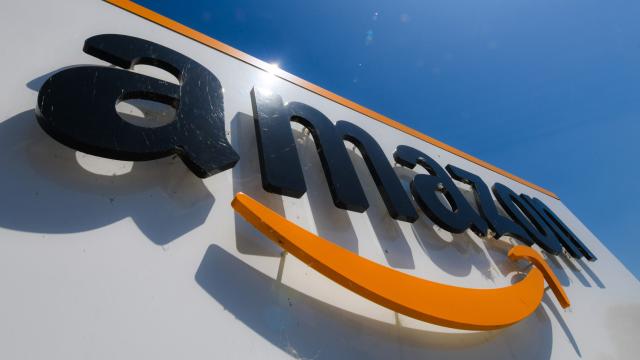The U.S. Federal Communications Commission gave Amazon the go-ahead Thursday for its ambitious Project Kuiper, which would put 3,236 broadband satellites into orbit to beam internet coverage down to Earth. With this regulatory milestone secured, Amazon’s posed to join SpaceX in the race to be the first multi-billionaire-dollar tech giant to gobble up the Space Internet market.
“We conclude that grant of Kuiper’s application would advance the public interest by authorizing a system designed to increase the availability of high-speed broadband service to consumers, government, and businesses,” FCC Secretary Marlene Dortch said in the agency’s authorisation order.
Amazon says it will launch its constellation of low-Earth orbit satellites in five phases, with broadband service becoming available once it has 578 satellites in orbit, according to the document. In its initial FCC filing, Amazon claimed that an estimated struggle to attend virtual classes amid the covid-19 pandemic. Per the filing, the Kuiper System will use Ka-band frequencies to provide “fixed broadband communications services to rural and hard-to-reach areas” as well as “high-throughput mobile broadband connectivity services for aircraft, maritime vessels and land vehicles.”
In a company blog post regarding the FCC’s approval, Amazon said it plans to invest more than $US10 ($14) billion in Project Kuiper to create jobs, ramp up satellite testing and manufacturing, and establish other necessary infrastructure.
“We have heard so many stories lately about people who are unable to do their job or complete schoolwork because they don’t have reliable internet at home,” said Amazon’s Senior VP Dave Limp in a statement. “There are still too many places where broadband access is unreliable or where it doesn’t exist at all. Kuiper will change that. Our $US10 ($14) billion investment will create jobs and infrastructure around the United States that will help us close this gap.”
To keep its FCC licence, Amazon must launch half of its 3,236 satellites by 2026 and the rest of the constellation by 2029, the authorization order states. Another important stipulation mandates that Amazon must finalise its design plans for the satellites and, more importantly, how the company plans to mitigate its contributions to the growing cosmic junkyard that is Earth’s low orbit. The FCC notes that Amazon failed to “present specific information concerning some required elements of a debris mitigation plan” in its filing, though the company claimed it plans to deorbit satellites within 355 days, which would fall well within NASA’s standards if true.
In 2018, the FCC OK’d a similar satellite constellation proposed by SpaceX known as Starlink. The company plans to send nearly 12,000 satellites into low Earth orbit and after launching its first 60 satellites back in May, hundreds more have followed.
The FCC didn’t mention possible launch dates for Project Kuiper’s deployment, or what rockets will be taking Amazon’s satellites into orbit. Not coincidentally, Amazon CEO Jeff Bezos also owns the aerospace firm Blue Origin, whose New Glenn orbital rocket is poised for its debut launch in 2021. Given the potential conflict of interest, it’s likely that Blue Origin will be among several competing to be Amazon’s launch provider.
